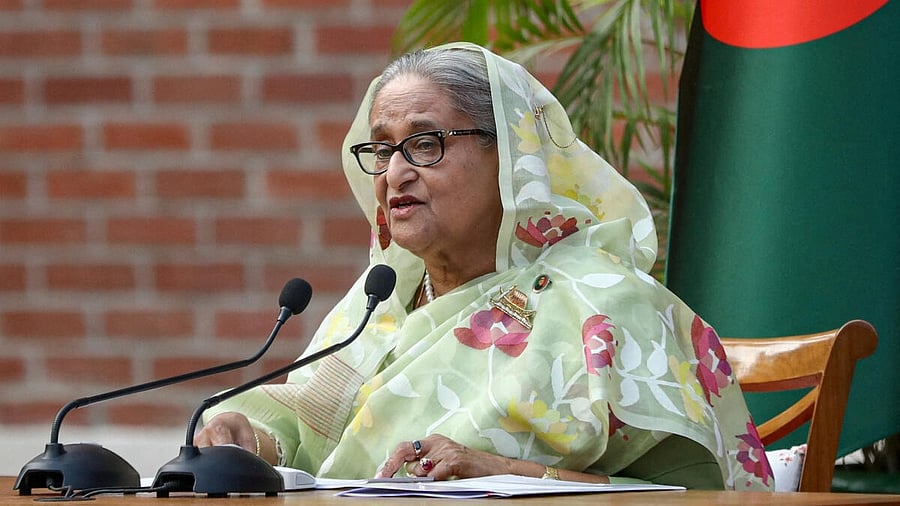
Sheikh Hasina
Credit: Reuters File Photo
The sentencing of former Bangladesh Prime Minister Sheikh Hasina by a tribunal in that country is a chronicle of death foretold, as it was clear from the beginning that the trial would end with the maximum sentence for her.
The International Crimes Tribunal (ICT) described her as the “mastermind and principal architect” of the 2024 crackdown that claimed many lives during the protests that led to her ouster and escape to India.
Hasina has rejected the judgement, coming from a “rigged tribunal established and presided over by an unelected government”. She has challenged the interim rulers to bring these charges in the International Criminal Court (ICC) at the Hague. Her party, the Awami League, has also approached the ICC for a probe into ‘retaliatory violence’ against its functionaries.
Political parties, including the Bangladesh Nationalist Party (BNP) and other groups aligned against Hasina and the Awami League, have welcomed the ruling. The interim government headed by Muhammad Yunus has hailed the judgement as “historic”, but the ruling is marked by strong bias and prejudice. ICTs, typically, have international judges, jurors, and prosecutors, but the tribunal that convicted Hasina had only Bangladeshi judges. Her sole defence lawyer was appointed by the government.
Bangladesh now has a polarised and vindictive political culture. Hasina can not disown her role in the rise of that culture. The political climate in Bangladesh has grown more vicious now, with the addition of Islamic fundamentalism and intolerance to the mix. Hasina has turned out to be a victim of that culture. In this scenario, especially after the ban on the Awami League, there is no possibility of free and fair elections. The Awami League is still a force in the country, as seen in the response to its lockdown calls in protest against Hasina’s trial.
The Bangladesh government has repeated the demand for Hasina’s extradition in the wake of the judgement. It said that it would be an “extremely unfriendly act and contempt for justice” if any country were to grant asylum to an individual convicted of crimes against humanity. India has made a guarded response and said it remains committed to the best interests of the people of Bangladesh, and would engage constructively with all stakeholders.
It has not questioned or criticised the judgement, but the demand will be a diplomatic test. India cannot give away a leader who was a friend for decades and is certain to resist Bangladesh’s demand, which is likely to gain strength after the February election.
